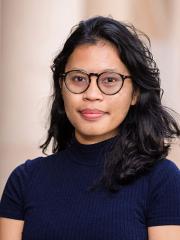
Waste reduction by co-producing ore-sand from energy-critical metals
Each year, billions of tonnes of mining wastes such as tailings and waste rock, are generated, stored in dams, or discarded into the natural environment. As mining is expected to play a significant role in the clean energy transition, the continued use of the current ‘take-make-use-dispose’ model will exponentially increase mineral waste production, reaching trillions of tonnes in the coming decades. These waste materials pose significant environmental and social risks, representing a missed opportunity to adopt resource-efficient and sustainable practices.
Proactive waste reduction through innovative eco-design of mining operations can maximise mineral utilisation in ores, transforming them into value-added materials like ore-sand before they become waste. This approach can help meet the growing demand for sand in construction, which is extracted at a rate of over 50 billion tonnes annually, often from vulnerable ecosystems. Focusing on case studies in Australia and the UK, this project explores the technical feasibility and sustainability of co-producing ore-sand from energy-critical ores. With a strong experimental focus, it involves characterising ores/materials, evaluating compliance with technical standards, assessing potential uses of co-produced materials, developing eco-efficient flowsheets, and conducting sustainability assessments through life-cycle analysis. The outcomes aim to build a compelling business case for a sustainable and circular mining model.
Bioantika is a PhD candidate at The University of Queensland's Sustainable Minerals Institute and the University of Exeter's Camborne School of Mines, under the QUEX Institute's joint research program. She holds a Master of Science in Sustainability with a specialisation in Climate Change and the Mining Industry from the Centre for Energy, Petroleum, and Mineral Law and Policy (CEPMLP) at the University of Dundee. Bioantika also has a Bachelor of Engineering in Mining and Mineral Engineering from Universitas Sriwijaya, where she researched sand mining operations in Palembang, South Sumatra. In 2022, she interned at the United Nations House of Scotland in the Climate and Gender department while pursuing her master's degree.
Bioantika's professional experience includes working as a mining engineer at Vale, Regional Commercial Associate at CarbonEthics, and a Consultant for Net-Zero Sustainability Transition at a London-based advisory firm. In these roles, she contributed to medium-term and short-term mine planning and worked with the Business Development team on joint ventures and strategic operations. Throughout her career, Bioantika has engaged with various governments, global non-governmental organisations, international finance institutions, and multinational companies in mining and energy transition-related fields.
Collaborations
Throughout her PhD at the Sustainable Minerals Institute, Bioantika will collaborate with Newmont and the Camborne School of Mines at the University of Exeter in the UK.
